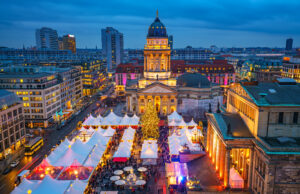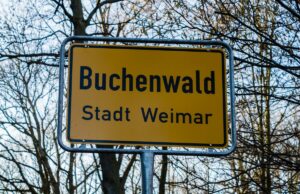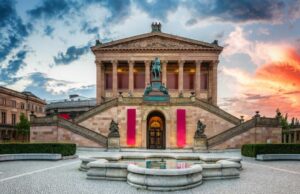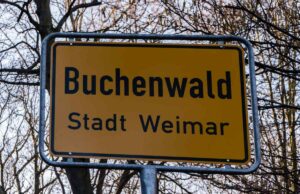
Besides great sights, an interesting history and many exciting destinations, Prescot has a lot more to offer. Here you will find many helpful tips to enjoy your vacation in Prescot.
Here you can find hotels in the area of Prescot
Just type in your destination and get many different suggestions.
Sights in Prescot
Prescot is a town in Lancashire, England. The town has a long history dating back to the 11th century, when it was mentioned in the Domesday Book. Today, Prescot is a vibrant and thriving town, with a number of interesting sights and attractions.
One of the most notable buildings in Prescot is the parish church of St Mary the Virgin. The church dates back to the 12th century and is a Grade I listed building. The church is renowned for its beautiful stained glass windows and unique architecture.
Another interesting sight in Prescot is the Prescot Cables Football Ground. The ground is the home of Prescot Cables FC, who play in the Northern Premier League. The ground was originally built in 1884 and has a capacity of 2,500.
If you are a fan of history, then you will definitely want to visit Prescot Museum. The museum is located in a grade II listed building and houses a number of interesting exhibitions. Visitors can learn about the history of Prescot, as well as the local area.
If you are looking for somewhere to relax and unwind, then you should head to Victoria Park. The park is located in the centre of Prescot and is a great place to take a stroll or have a picnic.
Overall, Prescot is a wonderful town with a lot to offer visitors. Whether you are interested in history, culture, or just want to relax in a beautiful setting, Prescot is definitely worth a visit.
History of Prescot
Prescot is a town in Merseyside, England. It is on the eastern side of the Metropolitan Borough of Knowsley, 8 miles (13 km) east of Liverpool city centre. Historically part of Lancashire, Prescot was a market town and centre of linen weaving, and remains home to Prescot Museum.
The history of Prescot is thought to date back to around the 12th century, when a small hamlet known as constantly referred to in documents of the time. In 1228, Henry III granted the right to hold a weekly market in Prescot, which helped the hamlet to develop. By the early 14th century, Prescot had become a thriving market town, with weekly markets and annual fairs being held.
Linen weaving was also an important industry in Prescot from the 14th century onwards, with many of the town’s weavers being employed in the production of Lancashire fustians. Fustian is a sturdy cotton fabric with a raised nap, and was used for a variety of purposes such as clothing, upholstery and curtains.
During the English Civil War, Prescot was a Royalist stronghold, and in 1644 Sir John Stanley, the Royalist commander in Lancashire, made his headquarters in the town. However, the following year the town was besieged by Parliamentary forces, and after a twomonth siege Stanley surrendered.
After the war, Prescot continued to prosper. In 1748, the first Prescot Racecourse was built, and horse racing has remained a popular pastime in the town ever since. The construction of the Leeds and Liverpool Canal in the late 18th century also brought new prosperity to Prescot, with the town becoming an important industrial centre.
Today, Prescot is a thriving town with a rich history. Prescot Museum is dedicated to preserving the town’s heritage, and there are a number of listed buildings in the town centre, including the Grade I listed Prescot Parish Church. visitor attractions include Prescot Shopping Centre, which houses a number of high street retailers, and the Prescot Playhouse, a Grade II listed theatre which dates back to 1794.
Vacation in Prescot
Prescot is a historic market town in the borough of Knowsley, Merseyside, England. It had a population of 18,174 at the 2011 Census. Historically part of Lancashire, it is located 10 miles (16 km) east of Liverpool city centre, on the south bank of the River Mersey. It is bounded to the north by the town of Kirkby, and to the south by the small village of Whiston and the large village of Rainhill.
Prescot is first recorded in the Domesday Book of 1086, under the name Pescop, although it is uncertain whether this refers to today’s town orconfig is a separate, unrecorded manor. By 1228 the spelling had mutated to Prestcote when William de Daresbury took on the tenancy, which passed to his son through inheritance in 1246. The Earl of Derby then took over the estate, which he held until the late 14th century when it reverted to the Crown. In 1528, Henry VIII sold Prescot manor to Fulke Greville, 1st Baron Brooke, whose grandson, Edward Noel, 3rd Earl of Gainsborough, sold it after inheriting it in 1714 to William Stanhope, 1st Earl of Harrington.
The Stanhopes, who were Earls of Harrington, owned Prescot Hall from 1714 until 1946. The Hall was originally a timberframed building, but was remodelled in brick in the early 19th century. In 1847, the author Harriet Beecher Stowe visited the Hall and described it as “a splendid specimen of an old English baronial residence”. The Hall was demolished in 1966.
The Earls of Harrington also owned Huyton House, which was demolished in the early 20th century. Huyton House was originally a farmhouse, but was remodelled in the early 18th century. It was once the home of the author Elizabeth Gaskell.
In 1866, the Stanhopes sold Prescot to Sir Lindsay Parkinson & Co., a coal mining company. The company continued to mine coal in Prescot until the early 21st century.
In 2006, work began on the regeneration of Prescot town centre. This included the construction of a new library, theatre and arts centre. The regeneration of Prescot was completed in 2009.
Since 2009, Prescot has been home to the Prescot Festival, an annual event which celebrates the town’s history and culture. The festival includes a parade, street theatre, music, dance and much more.
In 2012, Prescot was granted Heritage Action Zone status by Historic England. This means that Prescot will receive special funding to help preserve and promote its heritage.
So, if you’re looking for a historic market town with plenty of things to see and do, then Prescot is the perfect place for you. With its rich history and culture, there is something for everyone in Prescot.
Other vacation destinations in England:












